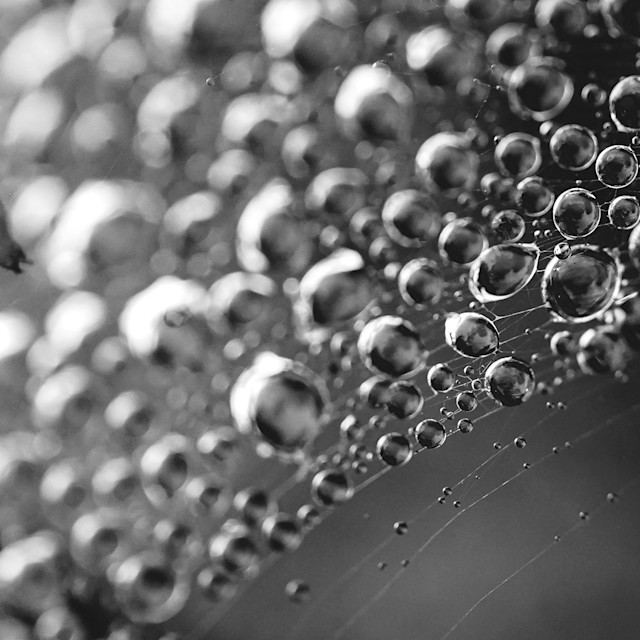The dry, cold weather requires a shift in your skincare routine.
There’s a lot to love about the transition into the chilly fall and winter seasons: the first sip of pumpkin spice lattes, cozy oversized sweaters, and brisk morning runs, to name a few. While your heart may be embracing the colder weather, your skin may not be much of a fan. The (often drastic) shift from sticky, humid days to frigid, dryer ones can wreak havoc on your complexion.
Luckily, there are steps you can take to combat the most common effects that cold weather has on your skin, according to Yin Ping Yue, an esthetician at the Spa at Equinox. Here’s your head-to-toe game plan.
Scalp and Hair
Your hair blowing in the crisp, cool breeze is a welcome relief after what felt like a never-ending summer heatwave. The downside: It’s harsh on your scalp. “In the colder weather, your scalp gets dry, and you can experience itchiness, dandruff, and flaking,” says Yue. “Increased scalp dryness also causes your hair to lose its moisture and shine.”
Though it seems like washing your scalp and hair more often would help get rid of flakes, overwashing hair actually causes further dryness. Instead, “look for ingredients in your shampoo or clarifying hair products with salicylic acid to gently exfoliate build-up, coal tar to help relieve itch and flakiness, or pyrithione zinc, which has antibacterial and antifungal properties to prevent dandruff,” Yue recommends. She also suggests a weekly moisturizing hair mask to help restore softness and shine to your hair. Similarly, silk pillowcases can help fight off friction that can occur when hair is dry. “Plus, they’re great for preventing fine lines and wrinkles on your skin,” Yue adds.
Face
Cold weather can be particularly harsh for your face since it’s mostly exposed to the elements. To maintain a dewy complexion, “start with taking a look at your cleanser,” says Yue. “You may want to switch to a gel or foam face wash that doesn’t strip the natural oils of your skin.”
If you’re not already exfoliating, introduce one into your regimen — stat. “It’s critical to remove dead skin and build-up with a gentle lactic acid- or glycolic acid-based exfoliator,” Yue explains. “If you don’t exfoliate your skin, it’s impossible for the rest of your skincare products to get absorbed properly. Aim for twice a week.”
RELATED: How to Use Acids In Your Skincare Routine
If you’re already using an exfoliating product but you’re still experiencing dryness, try upping it to three times a week — but not more than that or you’ll risk irritating your skin. “In cold weather, I also love to use a heavier moisturizer with a creamy, thicker texture as opposed to something water- or gel-based,” Yue says. It’s all about protecting and strengthening your skin barrier.
Body
While your leggings and sweaters feel soft and cozy, they can create friction against your skin, and they also trap dirt and debris, which could cause skin conditions like psoriasis and eczema to flare up. Aside from making sure to wash your clothes often and wearing looser materials, a weekly exfoliation session will also do wonders for your body's skin in the winter. “Since the skin from the neck down is generally thicker than your face, it can handle a physical scrub or an exfoliating glove in the shower,” says Yue.
Speaking of showers, try to resist cranking up hot water, as soothing to your soul as it may feel. “Cooler showers not only prevent your skin from getting dried out, [but they also have] a tightening effect on your skin while also absorbing moisture better,” Yue adds. When it comes to your body moisturizer, switch to one that focuses on ingredients with occlusive and emollient properties. “For fall and winter, I love a creamy body butter that features coconut oil for extra hydration — focusing on rough areas like elbows, knees, and heels,” she says.
RELATED: How Perspiration Helps Your Skin
A special note for hands, which take a beating during the season from extra hand-washing and exposure to the elements: Keep your favorite hand lotions next to all your sinks so they’re readily available. “Every couple of weeks, soak hands in a mixture of white vinegar and warm water for a few minutes to kill bacteria, then use moisturizing gloves overnight to help hydration sink in,” she suggests.
As always, if your body, face, scalp, or locks aren’t responding to topical, at-home treatments for the season’s woes, check in with your derm.
